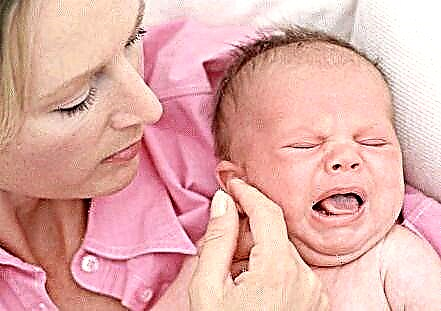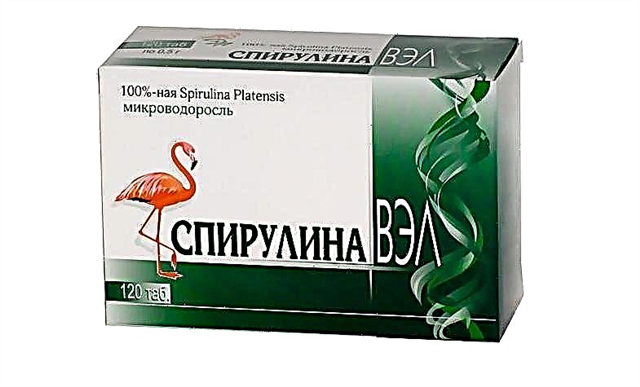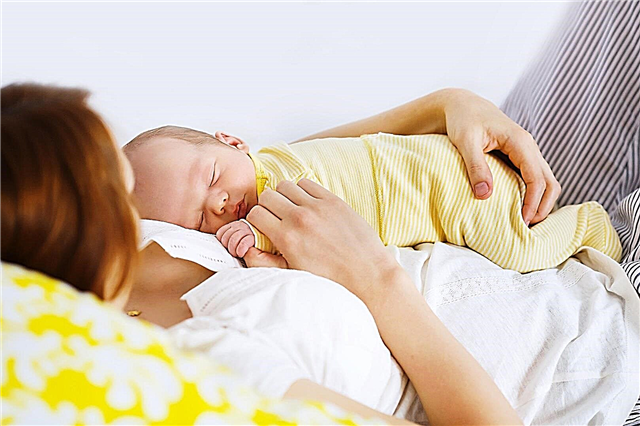At an early age, the child's immune system is not yet fully formed, so everyone can get a runny nose. An adult copes with the disease easily and quickly. A runny nose in a child causes many problems not only for the baby, but also for the parents. This condition interferes with sleep, breathing and eating normally. Many young parents are interested in the answer to the question of what causes a runny nose in infants, and how long it will take to eliminate it. The answers to these and other questions will be presented below.
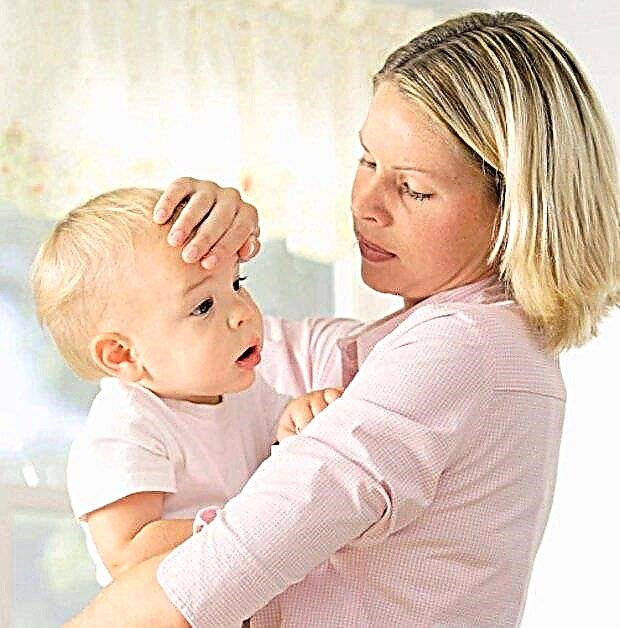
A pathological runny nose in a baby can appear at any time of the year, so it cannot be ignored
Important! If a baby's runny nose is not treated, it can cause complications: bronchial asthma, sinusitis, otitis media, changes in the chest and facial bones.
Why is nasal congestion dangerous for babies?
A runny nose in newborn babies is not a rare, but rather dangerous condition. Even a small runny nose can provoke a number of complications that often pose a threat to the baby's life. Rhinitis is accompanied by hyperemia and edema of the mucous membrane, which, in turn, complicates the physiological process of breathing. As a result, the baby becomes moody, whiny, lethargic and nervous.
In addition, hyperthermia, cramps, perspiration and sore throat may occur. Sometimes the child's eyes float, vomiting and diarrhea are observed. All this leads to dehydration and rapid weight loss. This condition is very dangerous for the life of newborn children.
In the presence of inflammatory processes in the child, the nose is blocked, the mucous membranes swell, because of this, asphyxia may begin. It is possible to alleviate the patient's condition and stop the development of the disease by medication.
When mucus enters the respiratory tract, tracheitis, bronchitis and pneumonia develop. In addition, nasal congestion can lead to disruption of the feeding process, during which the baby has to come off the breast or bottle and gasp for air. As a result, oxygen enters the intestines, provoking increased gas production, intestinal colic, which further aggravates the baby's condition. In addition, a runny nose in an infant can lead to the occurrence of chronic pathologies.

What to do with a runny nose in infants, you can ask a specialist
Types and causes of a common cold in a newborn child
A runny nose in infants can last up to two weeks. In the first days, it is accompanied by profuse watery discharge from the nose. If the runny nose is severe, the baby develops irritation and swelling around the nose. Experts distinguish between several types of rhinitis:
- allergic;
- physiological;
- viral;
- vasomotor.
Infectious causes of the common cold in children
An infectious rhinitis can be caused by a bacterial or viral infection. This is just one of the symptoms of a cold. In this case, it is very important to detect the disease in time and prescribe the appropriate treatment. An infectious rhinitis, as a rule, develops during periods of decreased immunity: teething, violation of diet, sleep and wakefulness.
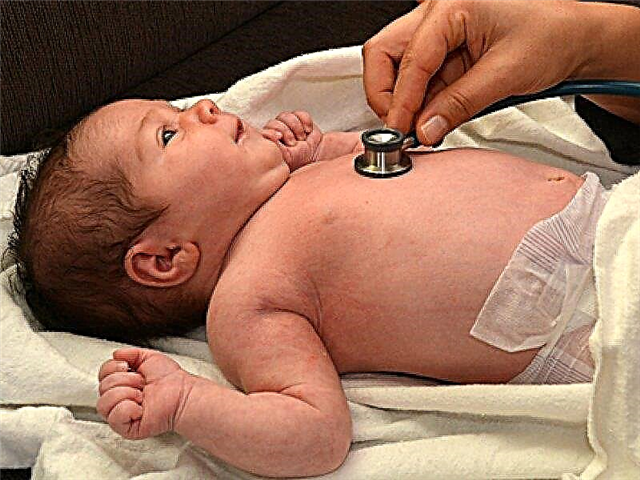
If a stuffy nose, or a baby's eye is swollen, you need to call a pediatrician
Runny nose of a viral nature
A viral rhinitis is usually one of the symptoms of adenovirus infection, influenza, or ARVI. In the pathogenesis of the viral rhinitis, there are three main stages: dry, wet and inflammatory. At the first stage of the disease, the nasal mucosa is very dry. The baby may experience lacrimation. At stage II, the child is diagnosed with profuse nasal discharge, increased body temperature, hyperemia and swelling of the nasopharynx.
At the ІІІ stage of development of the common cold, nasal discharge becomes purulent. At this time, the swelling subsides, which greatly simplifies the breathing process. However, this does not mean at all that the child has already recovered. In the inflammatory process, nearby tissues are involved, tracheitis, bronchitis develop, which leads to a cough.
Bacterial runny nose
A bacterial rhinitis in infants, as a rule, is a complication of an untreated viral symptom. The mucous discharge becomes viscous with a greenish tint. The child has hyperthermia for a long time.
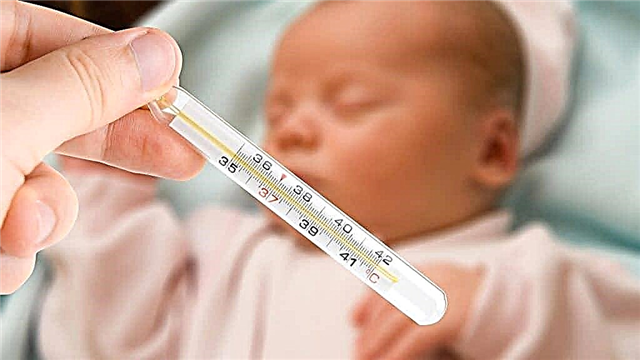
With infectious rhinitis, the child may have a fever
Non-infectious causes of the common cold in children
A runny nose in a child is not always a consequence of the development of a respiratory illness. It may well arise in the first months after birth due to the adaptation of the nasal mucosa to new and unusual conditions of the surrounding space.
Physiological rhinitis
This condition does not require treatment. This is typical for babies between 2 and 3 months of age. The mucous membrane of a newborn baby is fully formed during the first 10-12 weeks of life. The nasal mucosa could not form in advance, since the baby was in a liquid environment during pregnancy.
In the postembryonic period, the baby's body gradually adapts to new conditions of existence. The nasal mucosa is at first dry, then begins to actively produce mucus, nasal discharge appears. They are transparent and not too abundant. You should not panic in such cases, since this is a physiological process.
Allergic rhinitis
Allergic runny nose during breastfeeding is very rare. In order for the hypersensitivity of the respiratory organs to develop to any allergen, it takes a lot of time (several years). Therefore, many parents often mistake a physiological or cold cold, which proceeds without a rise in temperature, for a respiratory allergy.
It should be noted! An infant may develop food allergies, but it is manifested by skin rashes.
Vasomotor rhinitis
Infants are also rarely diagnosed. Its occurrence is associated with damage to the vessels of the mucous membranes of the nose or other disorders in their work. Only a qualified doctor can identify such a sore. He will tell parents how and how to treat snot in a child. If the nasal congestion persists for a long time, the child will have to pass several tests.
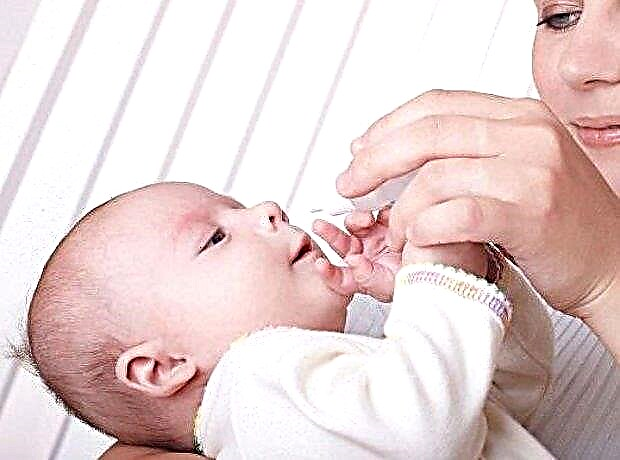
During illness, it is very important that the baby's mother is always near the baby
How to treat a runny nose in a child at home
Medication should not be started from the first day of the onset of a cold. In addition, only a pediatrician can prescribe medications. Today, there are a huge number of pharmaceuticals that are designed to treat the common cold in children under 1 year of age.
How to cure a runny nose in a child with medicines
If a runny nose is found in a baby, only a doctor should prescribe treatment. Sometimes, due to ignorance of some aspects, parents make mistakes during self-medication. For example, children under one year old should not rinse their nose with Salin, Aqualor and the like, as this can provoke inflammation of the middle ear.
There is no need to rely only on vasoconstrictor drugs, and even more so to overdo it with them, since these drugs do not cure a runny nose. They only help to free the nasal passages from mucus for a while, sometimes provoke swelling of the mucous membrane. In addition, habituation may develop after five days. The safest and most popular drugs in this group are Nazivin and Nazol Baby. It is necessary to carry out instillation into the nose at night or before bedtime, one drop in each nostril.
It is possible to remove edema with the help of antihistamines, but this should be done only in cases where it is precisely established that the etiology of the common cold is associated with an allergic component. What to do with a runny nose in a baby, the doctor will tell you exactly.
For an infectious rhinitis in a child, immunomodulators and antiviral agents are prescribed. In this case, pediatricians recommend using Interferon and Grippferon. Children under 6 months old are recommended to use Interferon only in the form of drops. Derinat can be distinguished among immunomodulators. This drug is approved for newborns, since it is based on components of natural origin. The solution is easily tolerated by babies and is able to activate the protective functions of the body to fight the common cold.
Antiseptic drops help fight off disease-causing bacteria. Among this group of drugs, the most popular are Protargol and Miramistin. As a rule, 1-2 instillations per day using a pipette are enough. You can also use Albucid, an eye drops based on sodium sulfacyl.
Important! There are no absolutely safe medicines for babies. Any drug can provoke an allergic reaction or other side effects. In no case should you enter funds into the nose with the help of sprays. Even seawater can only be dripped in drops.
Treatment of a common cold in children with folk remedies
Prescriptions of traditional healers can help in the treatment of a common cold, but they can only be used by agreement with a doctor in combination with other means.
If a runny nose in a baby at 1 month old is a symptom of a cold, then several recipes adapted for babies will do:
- Drops of olive oil with garlic. 20 ml of olive oil is boiled for several minutes, after which 3 unpeeled garlic cloves are added to them. The mixture is infused for a day. Then the garlic is removed. The resulting solution is smeared with the nasal mucosa 2 times a day.
- Aloe and Kalanchoe juice. The leaves of the plants are thoroughly crushed and then poured with water in the same proportion. If the child does not have allergies, you can add a little bee honey to the mixture. The medicine is used for instillation into the nose, 3 drops in each nostril.
- Sea buckthorn oil and calendula juice. Quite an effective antiseptic. To prepare the medicine, both ingredients are mixed in equal proportions. Then add a little propolis or honey to the mixture. The resulting composition is moistened with a cotton swab and inserted into one of the baby's nostrils for 20 minutes. After that, similar manipulations are performed with the other nostril.
Important! It is forbidden to use cotton swabs, matches with a cotton swab for cleaning the nose in children due to the high probability of mucosal injury.
What can not be done with a cold in children
Parents should follow all the recommendations of the pediatrician, and also not do the following:
- use vasodilating drops without a pediatrician prescription;
- rinse your nose with a pear;
- ignore the doctor's recommendations;
- drip antibiotics into the nose;
- put garlic in the nostrils;
- do not instill breast milk in the nose.
The modern pharmaceutical market offers the buyer a wide selection of medicines that can be used to treat a cold in a child. When using them, you need to be extremely careful and accurate, to act in accordance with the instructions of the attending physician.

